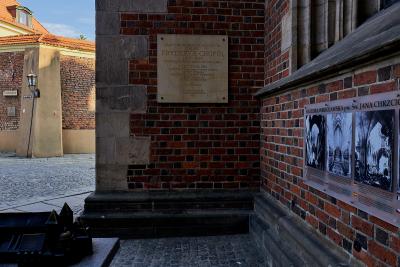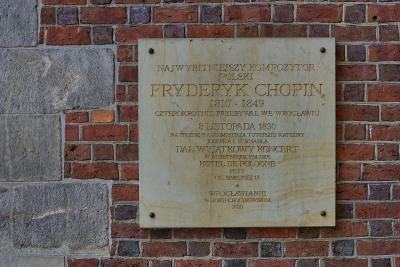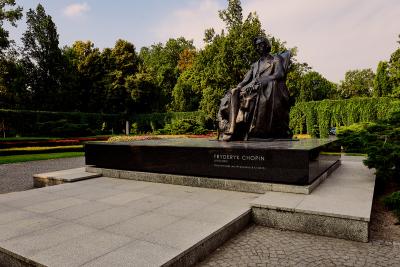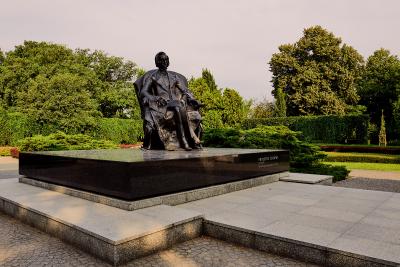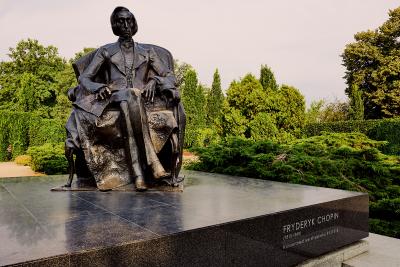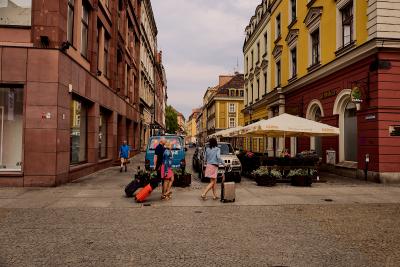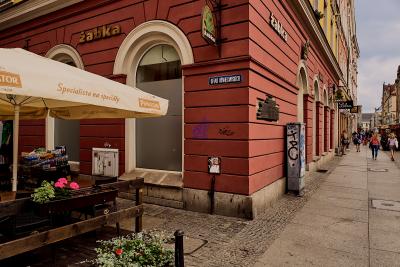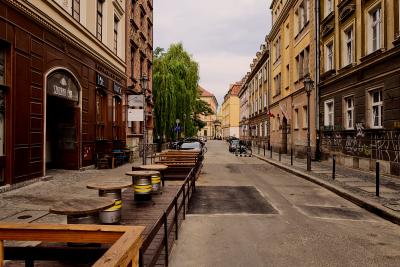“We were reluctant to leave Wrocław”. Frederic Chopin in the Silesian capital

Impressions from this stay
During his last stay in Wrocław, Chopin and his friends had time to pursue the cultural offerings of the city and to meet with Elsner’s friends. On Saturday, 6 November, their very first day in the Lower Silesian metropolis, they visited the municipal theatre in Taschenstrasse (now on the corner of Oławska and Piotra Skargi streets) and watched the piece entitled “Der Alpenkönig und der Menschenfeind” by the Austrian dramatist Ferdinand Raimund, who was very popular in Warsaw. On Sunday, they met with the musical director at the cathedral, who Chopin already knew. Schnabel invited the composer to a rehearsal of the concert which was to take place the next day in the large ballroom at the “Hotel de Pologne” in Bischofsgasse (now ulica Biskupia). Chopin accepted this invitation. On the pretext of wanting him to try out the instrument, Schnabel talked Frederic into playing, and with this little ruse managed to rid himself of Hellwig, an amateur musician.
“Before Hellwig could sit down at the instrument – wrote Chopin on 9 November 1830 in a letter to his family from Wrocław –, Schnabel, who had not heard me play for four years, asked me to try out the piano. I could not refuse, so I sat down and played a few variations. Schnabel was absolutely delighted, Mr Hellwig lost his nerve, the others started to ask me if I would play in the evening.”
Chopin’s performance on the Monday was a complete success. There was no press release, however, as the event was only open to a small audience. And although the evening programme was to include the Romance from Chopin’s Concerto for Piano and Orchestra No. 1 in E minor (Op. 11), he only played the Rondo. In the letter mentioned above, the musician wrote about the concert and the reception that followed:
“As well as the Rondo, I improvised a theme from ‘The mute girl of Portici’ for the connoisseurs. At the end, an overture was played and afterwards there was dancing. (…) A lady – continued Chopin –, who the director introduced me to after the concert as the first local pianist, thanked me very much for the pleasant surprise and expressed regret that I do not play in public.”
No further details have been passed down about the places that Chopin and his friend visited over the next few days. Presumably, Scharff, a businessman that they had got to know by chance, showed them around:
“He led us (...) through the whole of Wrocław, even hired a hackney carriage, and drove round with us on the most glorious promenades.”
The composer was obviously very impressed by the city. When he left Wrocław on 10 November 1830, he was unable to hide his sorrow.
“We were reluctant to leave Wrocław”, wrote Chopin from Dresden.
But Paris, the capital of the world, was waiting for him. Twenty days later, the November Uprising broke out in Warsaw.
Krzysztof Ruchniewicz, June 2018
The citations are taken from:
Tadeusz Mikulski, Pod Złotą Gęsią, [in:] ders., Spotkania wrocławskie, Kraków 1954, page 121. Polskie podróże po Śląsku w XVIII i XIX wieku (bis 1863), selected and edited by Andrzej Zieliński, Wrocław 1974, pages 161-163.
From Chopin’s letters cited from: The collected letters of Frederic Chopin. Published for the first time and translated faithfully into German by Bernard Scharlitt, Leipzig 1911, pages 105-107.
